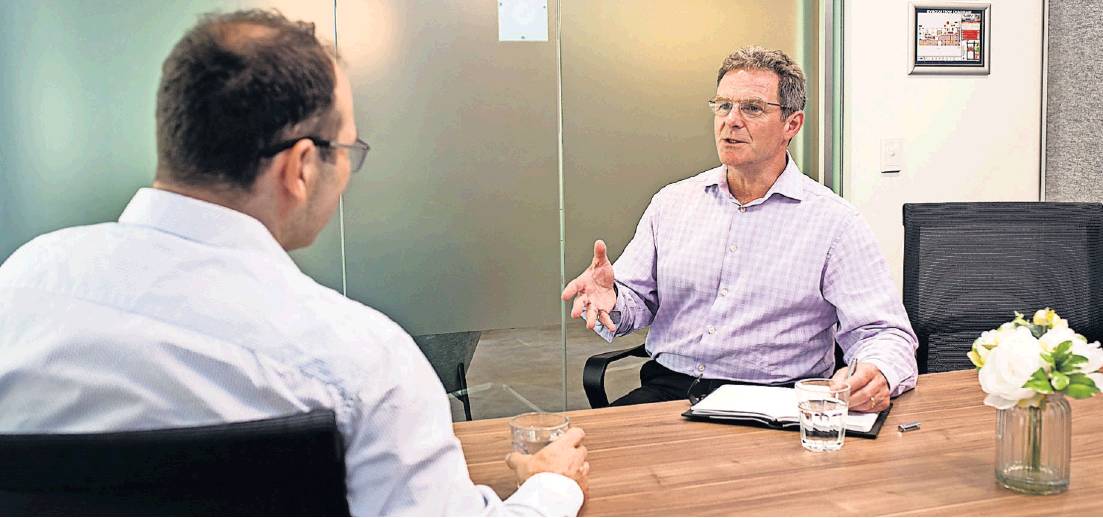Earning respect in the ‘trust deficit’ era
The behaviour of corporate leaders is under intense scrutiny, as evidenced by recent controversies involving matters such as sexual harassment claims, questionable inter-office relationships, dubious expenses and excessive remuneration.
Amid the heightened scrutiny from media, investors and social and environmental activists, many CEOs bow out with their reputation and dignity tarnished – even if their financial stewardship is sound.
Despite record high iron prices that spurred Rio Tinto’s bottom line, the miner’s CEO and two other senior executives resigned after the reputational fallout from the company’s detonation of Pilbara caves containing ancient Indigenous drawings.
Edelman’s 2021 Trust Barometer – a global measure of people’s faith in companies, governments, the media and non-government organisations – shows that only companies are rated positively in an overall “falling trust ecosystem”.
However, based on the reputation management firm’s online survey of 33,000 respondents across 28 countries, the barometer also reveals CEO credibility is “at all-time lows in several countries … making the challenge for CEO leaders even more acute.”
According to executive leadership coach Conor O’Malley, there is a paradox at play. “In the global pantheon of ‘trust’, companies have performed better than society’s other key institutions in the pandemic era. But we are now looking for CEOs to take more of a lead in broader social issues well beyond corporate strategy and balance sheet health.”
Increasingly, CEOs indeed are willing to comment on social issues seemingly beyond their corporate remit, such as Qantas CEO Alan Joyce’s strong advocacy of marriage equality.
Sometimes the notion of CEOs having a broader role beyond the stewardship of their company can generate accusations of overreach and hypocrisy.
But Business Council of Australia president Tim Reed has no qualms about his peers speaking out.
‘‘If there is an issue that they feel might be considered a social issue but an issue that is important to their business, then absolutely they (CEOs) should have the right to talk about that,’’ he told the ABC on his appointment in 2019.
O’Malley says these public comments by CEOs reflect, in part, the millennial generation looking for a different style of leadership to the egofuelled ‘my way or the highway’ approach.
“They are looking to be taken on a journey of trust, as opposed to having to trust the leader because of their position in the company,” says O’Malley, who authored the bestselling book Trust - Begins and ends with self.
O’Malley says that to lead effectively today, executives must be more self-aware and use skills that emphasise effective listening, empathy and curiosity to augment the more traditional leadership skills of vision and decision-making.
Having coached executives across industries including retail, fast-moving consumer goods (FMCG), travel, sports betting and even the prison system, he believes they can be coached to change their fundamental thinking in the same way a sporting team can be coached to premiership glory: “but only if they are learners and willing to learn.” He says there’s a key difference between executive coaching and mentoring. Coaching, he says, is not about advising the executive on a specific action or decision, or delivering an uplifting pep talk.
Rather, the process is about asking pertinent questions that prompt the leader to change their “way of being” and the way they take action.
“Executive coaching supports leaders to make sustainable and conscious changes and to be more effective, not just for their own company and team but for society as a whole,” O’Malley says.
The coach must be a trusted, professionally qualified person who can listen effectively and respectfully ask challenging questions.
The process ingrains a life and coaching philosophy – created by O’Malley – called Observe| Choose|Act. This ethos “enables leaders to question their own narratives and ask themselves about the possibilities of alternative actions in these increasingly uncertain times.”
He says a positive ‘chemistry’ between coach and executive is essential during the confidential one-on-one conversations, which take place over an extended period.
Crucially, both the coach and the client must agree on measurable results such as managing the board relationship, a CEO’s purpose and legacy, or a senior executive using language more effectively and being “present in the moment”.
Dubbed the “CEO’s caddy”, O’Malley is an accredited ontological practitioner and is professionally certified with the International Coaching Federation. (Ontology is the branch of philosophy that studies concepts such as existence, being, becoming, and reality.)
O’Malley also has practical business experience, having spent two decades in supply chain executive roles in the retail and FMCG sectors.
“The learnings I have had from Conor’s coaching have helped me make tougher decisions in my business,’’ says client Dave Fenlon, head of listed skincare group BWX.
Sportsbet CEO Barni Evans says O’Malley has “materially changed the demeanour, communication, thinking and relationship management” of the executives involved, leading to more “positive, cogent and productive” interactions.
Woolworths chief supply chain officer Paul Graham says O’Malley’s program “built a greater degree of shared trust and renewed self-belief in the person being at their best”.
Such comments attest to the reality that as our expectations of CEOs evolve, executive coaching is playing an increasing role in helping leaders successfully navigate the changing landscape.
